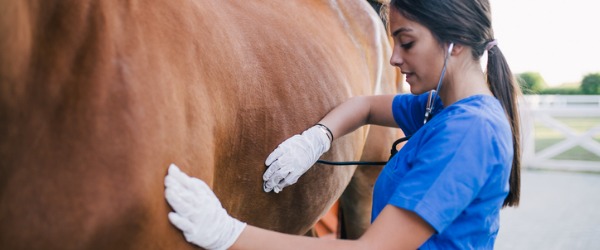Veterinarians may be employed or contracted by veterinary clinics and hospitals, government agencies, educational institutions, wildlife management groups, zoos, aquariums, ranches, farming-related businesses, or pharmaceutical companies.
The following are examples of types of veterinarians:
Companion animal Veterinarians
These veterinarians diagnose and treat diseases or abnormal conditions in animals, most often cats and dogs. They are the most common type of veterinarian and provide inoculations; prescribe medication; set bones; dress wounds; perform surgery and dental work; offer euthanasia services; and advise clients on the general care of their animals.
Veterinary Practitioners
These are veterinarians in clinical practice who have advanced training and expertise in a particular animal species. Some examples are:
- Avian Practice (birds)
- Canine/Feline Practice (dogs and cats)
- Equine Practice (horses)
- Exotic Companion Mammal Practice (ferrets, rabbits, mice, rats, and other small mammals often kept as pets)
- Reptile and Amphibian Practice (snakes, lizards, salamanders, turtles, etc.)

Food animal Veterinarians
These are the veterinarians who work with farm animals raised to be food sources, most commonly cattle, pigs, chickens, and sheep. Food animal vets spend much of their time on farms and ranches and test for, treat, and vaccinate against disease. Their consultation with farmers includes topics such as housing, feeding, and general health.
Food safety and inspection Veterinarians
The primary focus of these veterinarians is the inspection and testing of livestock and animal products. This involves vaccinating animals, conducting research to improve animal health, and examining slaughtering and processing plants. Food safety and inspection vets also participate in the administration of animal and public health programs designed to prevent and control transmission of diseases among animals and between animals and people. In short, they work to enforce government regulations concerning food safety.
Research Veterinarians
These veterinarians contribute to human health as well as animal health by engaging in research to prevent and treat diseases in humans. They may conduct clinical research on health problems which afflict both humans and animals; investigate the effects of drug therapies; and test potential new surgical techniques.
Related Careers

Pediatrician
Derived from the Greek words pais, meaning child, and iatros, which means doctor or healer, a pediatrician is a medical professional who specializes in providing medical care to children.